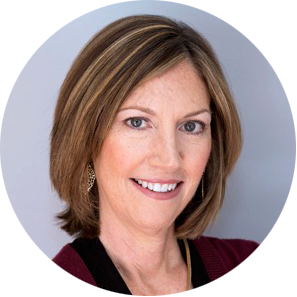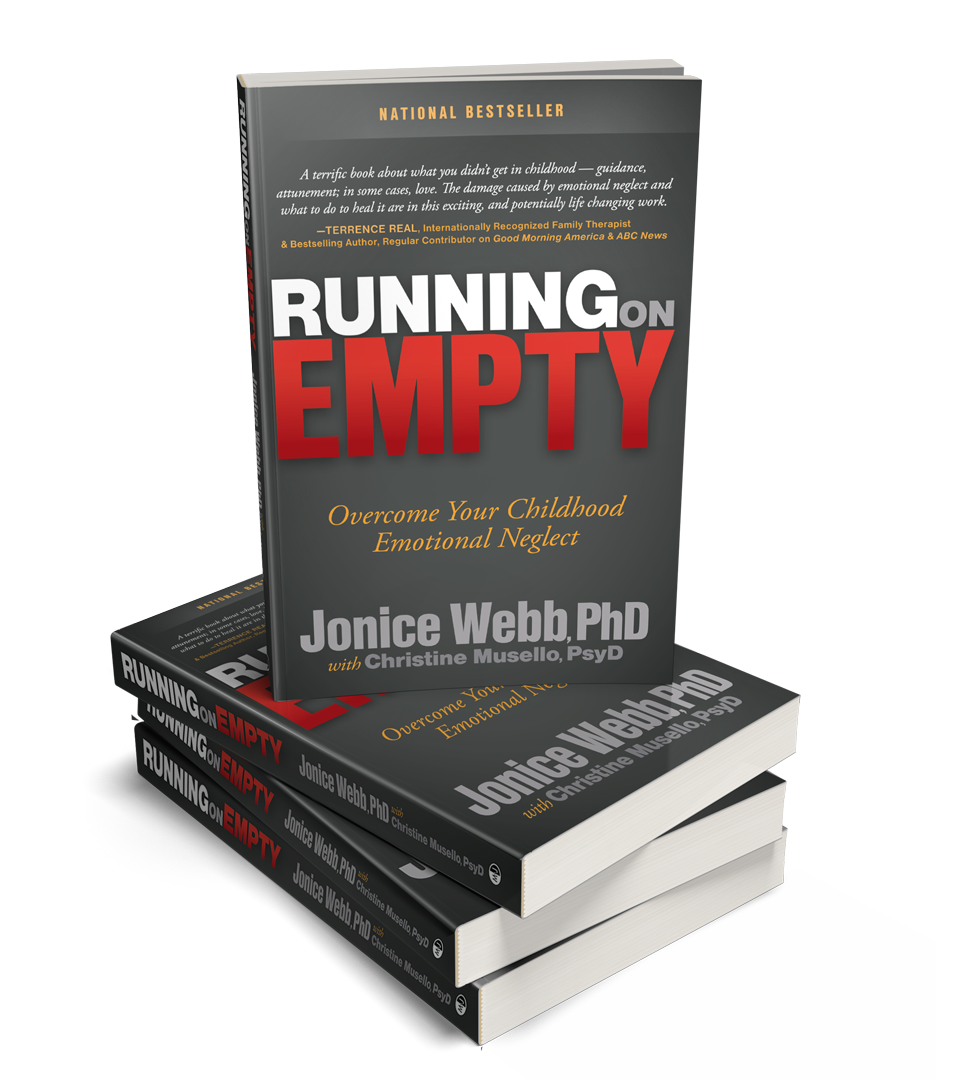
Emotional Neglect Questionnaire
Becoming aware of the impact of CEN can make a tremendous difference in your life.
"Becoming aware of my CEN has hit the nail on the head for me. This is the missing piece that I’ve been searching for."
"I finally understand what’s been wrong all my life, and I have hope that I can fix it."
"This concept is literally a lifesaver for me."
CEN is often subtle, invisible and unmemorable.
SO HOW DO YOU KNOW IF YOU HAVE IT?
Take the Emotional Neglect Questionnaire to find out...
Keep track of how many questions you answer YES to and add them up at the end.
Do You...
1. Sometimes feel like you don’t belong when with your family or friends ?
2. Pride yourself on not relying upon others ?
3. Have difficulty asking for help ?
4. Have friends or family who complain that you are aloof or distant ?
5. Feel you have not met your potential in life ?
6. Often just want to be left alone ?
7. Secretly feel that you may be a fraud ?
8. Tend to feel uncomfortable in social situations ?
9. Often feel disappointed with, or angry at, yourself ?
10. Judge yourself more harshly than you judge others ?
11. Compare yourself to others and often find yourself sadly lacking?
12. Find it easier to love animals than people ?
13. Often feel irritable or unhappy for no apparent reason?
14. Have trouble knowing what you’re feeling ?
15. Have trouble identifying your strengths and weaknesses?
16. Sometimes feel like you’re on the outside looking in ?
17. Believe you’re one of those people who could easily live as a hermit ?
18. Have trouble calming yourself ?
19. Feel there’s something holding you back from being present in the moment?
20. At times feel empty inside ?
21. Secretly feel there’s something wrong with you ?
22. Struggle with self-discipline ?
Yes No
Yes No
Yes No
Yes No
Yes No
Yes No
Yes No
Yes No
Yes No
Yes No
Yes No
Yes No
Yes No
Yes No
Yes No
Yes No
Yes No
Yes No
Yes No
Yes No
Yes No
Yes No
Look back over your YES answers. These answers give you a window into the areas in which you may have experienced Emotional Neglect as a child. The more questions you answered "Yes", the more likely CEN has affected your life.

Dr. Jonice Webb
"Hi, I'm Dr. Jonice Webb, and now that you know how much Childhood Emotional Neglect, or CEN has affected your life, I would like to give you some tips on how you can recover from CEN."
Why is it important to recover from CEN?


Why is it so difficult to live with CEN?
How to recover from CEN
What’s wrong?
Why did you do that?
Why do you say that?
How do you feel?
What do you want?
What are you afraid of?
What are you worried about?
What’s making you angry, sad, hurt, etc?

Your Road to Recovery from CEN
These tips will help you to start on the road to recovering from CEN. You will finally start to understand things that have eluded you for your entire life. You will feel validated for the struggles you have had. And you will be able to start helping yourself to do things differently, now that you really know what happened.
During over 20 years of practicing psychology, I started to notice an “invisible factor” from childhood which weighed upon people in adulthood, sapping their joy, making them feel disconnected or unfulfilled, or causing them to struggle with self-discipline.
I called it Emotional Neglect.
First, I saw it in my psychology clients. Then, the circle widened, and I began to see it in the people all around me: at the grocery store, the mall, and even on reality TV shows.
This factor from childhood is so subtle that it goes virtually unnoticed by everyone while it does its silent damage to people’s lives.
As I became aware of the full power and prevalence of Emotional Neglect, I felt compelled to drag it out of the darkness and into the light; to help people to see how it effects them, and to give them the tools to fix it.

So I wrote a book called Running on Empty: Overcome Your Childhood Emotional Neglect.
This is the first book written about Emotional Neglect.
In it, I talk about:
- Twelve types of parents who inadvertently emotionally neglect their children
- Ten issues that emotionally neglected children struggle with as adults
- And six clear strategies for how to overcome Emotional Neglect.
I hope that Running on Empty will make people aware of the concept of Emotional Neglect so that they can see it in themselves and others, have the words to talk about it, and ensure that they don’t unwittingly pass it down to their own children.
And my biggest goal is to help the large number of people who are struggling in silence, wondering what is wrong with them. To give them answers, and the tools to fix their Emotional Neglect.
Reader's Comments...
"My childhood was exactly as described in the book — my parents took great care of all of my physical needs, but were completely out of touch with my emotional needs. I was very shy and didn’t have many friends through middle school and high school. My self-esteem plummeted, despite doing very well in school. I was very sad and lonely, but my parents didn’t notice. They were happy that I did well in school, and assumed everything else was fine. Reading this book has given me a framework for reworking my adult relationships with my wife and kids. Luckily for me, it’s not too late. I strongly recommend this book for anyone who has had experiences like mine and wants to overcome them."
"This was an amazing book. As someone who was never physically abused in childhood but who was definitely emotionally neglected, I was so relieved and comforted to know that a lot of what I struggle with is not my fault nor is it weakness. It is simply a result of not getting something which was needed as I was growing up. It is so much easier to help yourself when you know what is really wrong. Especially helpful is reading that many parents who Emotionally Neglect their children are not cruel or heartless but actually love their children and yet are unable to provide the emotional support necessary due to factors possibly from their own childhoods."
"I can’t tell you how grateful I am that you put my life long chaos, my struggles into something tangible. For years I have searched and searched for answers as to what is wrong with me. When I started reading this book in the evening, I was so happy I wanted to jump up and down on my bed because someone finally knew me. From the bottom of my heart, thank you!!!"
"This book is profoundly changing my life. Every word resonated within me. I asked my therapist to read it so that we can work together in helping me to deal with overcoming my childhood emotional neglect. What a journey."
"I think CEN provides some deeper answers than “you have depression and anxiety” for a lot of people who know there’s something deeper and more sinister going on but can’t put their finger on it exactly… if you don’t know what the problem is then you don’t know how to fix it or even how to understand why you feel that way."
"Wow. Where do I start. Firstly, thanks for the insight into how I got to where I am today, emotionally speaking. I have spent years working on the symptoms of anxiety, depression, feeling inadequate, unassertive, lost and empty. Why do I feel like this? Now I have an explanation that makes sense, and gives me a new angle from which to tackle my issues. I hope I can overlook the past and move forward into a happier future."
"Thank you so much for writing this book. At age 65 I’m finally discovering what this empty feeling I’ve had all my life is all about. I truly felt that there was something wrong with me but kept it to myself, it was my dark secret. I kept trying to figure out why can’t I be happy like everyone else? I found no answers until I read your book. It has brought me comfort and understanding. Thank you again."
"I must have read 100 books since I put the word “stuck” into google when I started my search for why I felt empty and unhappy, even though I had been very successful materially and had a loving family. This book is really helpful for anyone who feels the same. The best bit is that the book not only describes examples of what might have created the emptiness but offers practical advice as to how to move forward."
"I’m 49, divorced with four kids, remarried. Late last year I finally figured out that I’d been neglected as a child, not what one might call a severe case, but bad enough. I found your book and the light went on. Since then I’ve been doing the exercises in the book and had what I would call an emotional awakening — its like having a new sense organ. Amazing, exciting, weird. And feelings of vagueness and emptiness and not knowing what I’m feeling are melting away."